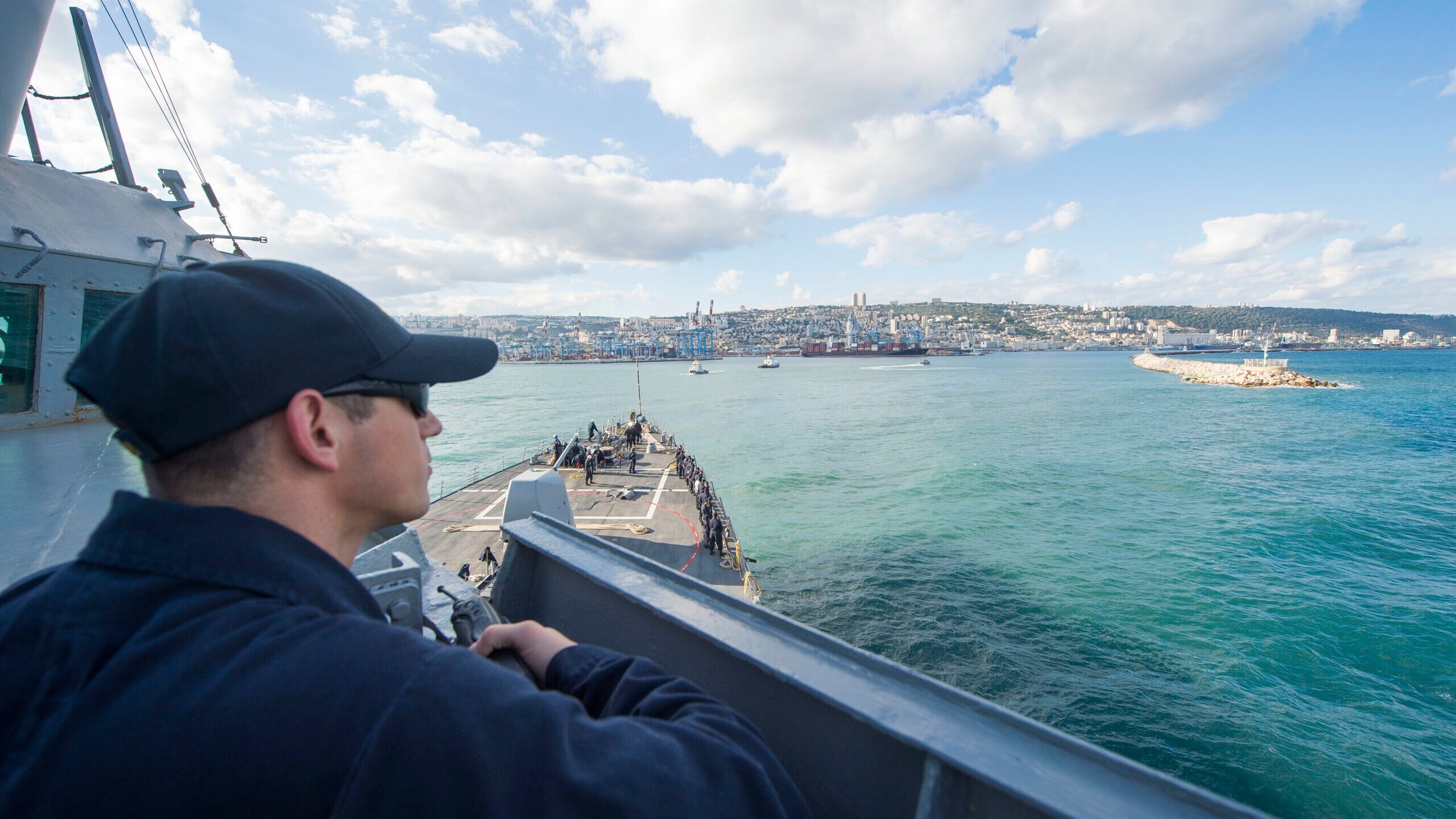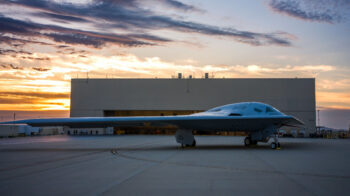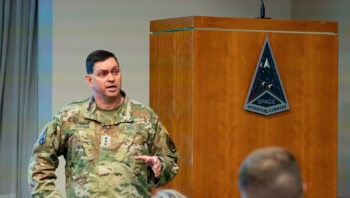
Chief Gunner’s Mate David Tercero, from Thornton, Colo., monitors outbound civilian merchant traffic as the guided-missile destroyer USS Cole (DDG 67) arrives in Haifa, Israel, for a scheduled port visit. (U.S. Navy photo by Mass Communication Specialist 2nd Class John Herman/Released)
TEL AVIV: American officials have continued to press their Israeli counterparts about espionage concerns related to a Chinese-built port in Haifa, suggesting that the Israelis conduct regular inspections of heavy machinery there to ensure nothing nefarious is afoot, Israeli defense sources told Breaking Defense.
The renewed warnings have come in the weeks since CIA Director William Burns reportedly raised similar concerns with Israeli Prime Minister Naftali Bennett last month about Chinese infrastructure projects. In February Israel refused an American request to inspect the Chinese port in Haifa itself, as the Israeli daily Haaretz first reported.
Israeli sources told Breaking Defense that security officials here share Washington’s concerns, as the Israeli navy maintains its largest base adjacent to the port. The US Navy also frequents Haifa.
RELATED: Israel Rejects US Plan To Inspect Chinese Harbor At Haifa
Gabi Siboni, head of the Military and Strategic Affairs Program and Cyber Security Program at the Israeli Institute for National Security Studies (INSS), said that there is a clear danger from any surveillance technology that could be inserted into the new port’s equipment. “It is possible to plant surveillance systems in heavy machinery used in the port and these can transmit what they see or hear,” Siboni said.
A spokesperson for the US State Department said that while they would not comment on “specific projects,” US officials “are engaging with allies and partners worldwide, including with Israel, as they develop national security-focused investment screening systems.”
“We have been candid with our Israeli friends over risks to our shared national security interests and will continue these discussions in the appropriate venues,” the spokesperson said. The CIA declined to comment for this report.
Some of the domestic concern, the sources said, comes from the fact the Israeli navy recently took delivery of new Sa’ar 6 corvettes and is expecting delivery of the Dolphin 2 AIP submarine, under construction in Germany. Sources said those projects are sensitive enough that the Israeli government asked the Germans to hide some sections of the submarines from public view. Both marine fighting platforms are now being equipped with highly classified combat systems developed in Israel.
The new Haifa Bayport terminal was built with a $1.7 billion investment and, according to the 25-year contract, will be managed by China’s state-owned Shanghai International Port Group (SIPG).
A report last month from INSS detailed various security concerns, from the worry over “debt traps,” to the potential for Chinese military port visits to direct espionage.
The researchers say that the Bayport Terminal is no nearer to the Israeli naval base than many civilian buildings in Haifa, yet its location on the waterline offers the potential for gathering acoustic intelligence — perhaps via the port’s eight cranes. (The cranes themselves are made by another Chinese company and have been used around the world, including in San Francisco and South Carolina, the report says.)
The researchers said that the terminal, like any strategic infrastructure close to Israel’s critical security assets, requires full and professional risk management, as well as close, coordinated oversight from Israel’s security and transportation services.
RELATED: Israelis Create Foreign Investment Overseer; China Targeted
Israeli defense sources said that the navy will take some “operational steps” to keep its surface and underwater platforms safe from “suspected foreign eyes and ears.”
Representatives for the Chinese embassy in Tel Aviv and for SIPG did not respond to requests for comment for this report.
China’s new H-20 stealth bomber ‘not really’ a concern for Pentagon, says intel official
“The thing with the H-20 is when you actually look at the system design, it’s probably nowhere near as good as US LO [low observable] platforms, particularly more advanced ones that we have coming down,” said a DoD intelligence official.


























